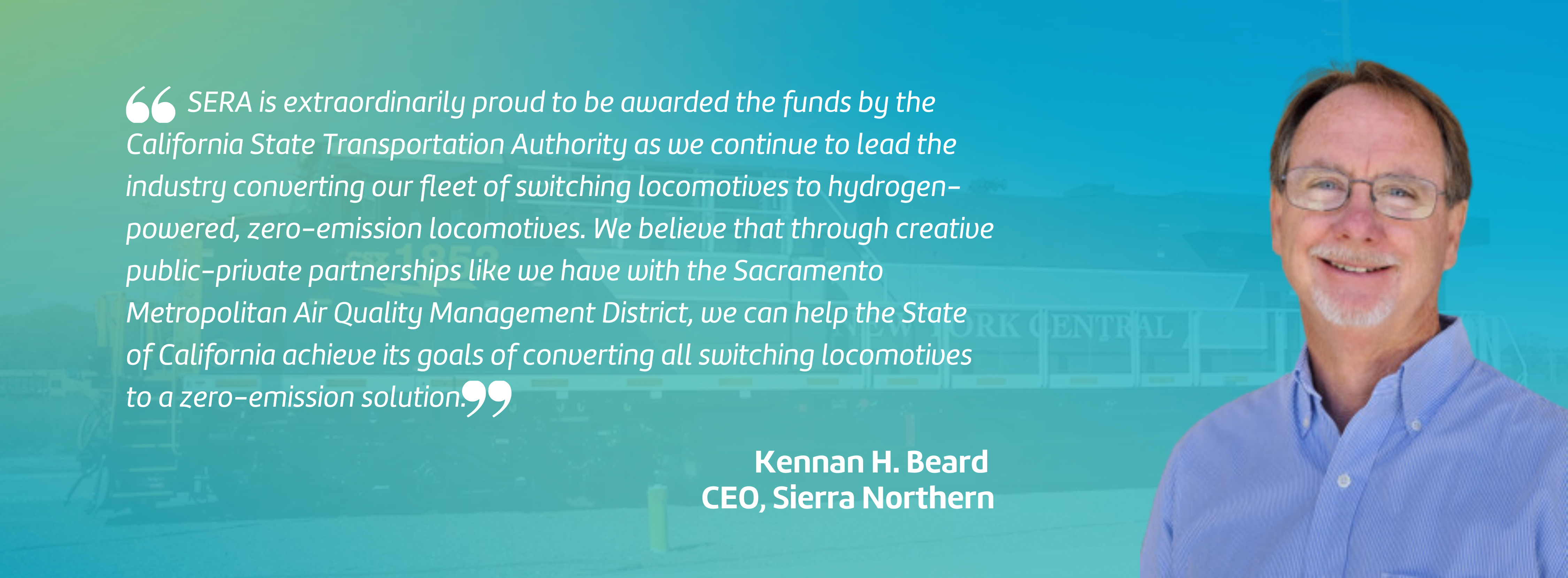![Rendering of SERA's zero-emission hydrogen-powered switching locomotive [image courtesy of SERA]](https://blog.ballard.com/hs-fs/hubfs/SERA.png?width=1000&height=563&name=SERA.png)
When completed in 2027, a new decarbonized locomotive project will expand Sierra Northern Railway's (SERA) hydrogen-powered switching locomotives to a fleet of four. Powered by Ballard Power Systems' 200kW FCwave™ fuel cell engine, the project supports SERA's ambition to convert its entire fleet to zero-emission and help decarbonize all 260+ of its switchers in California, U.S.
The retrofit project, funded by the California State Transportation Authority and supported by GTI Energy, is converting diesel switcher locomotives to zero-emission hydrogen fuel cell technology, a transition that will significantly reduce CO2, nitrogen oxides and particulate matter emissions. Overall project costs total nearly $20m and will assist SERA's ongoing efforts in developing hydrogen-powered switching units.
SERA will convert and test a fleet of four hydrogen fuel cell-powered trains, with each locomotive powered by two Ballard 200kW modules - providing superior support in terms of payload, range of refueling requirements. Ballard is currently delivering fuel cell support to a range of advanced projects in the rail sector, including the Siemens Mireo H2's recent test drives and CP Rail's hydrogen-powered initiatives in Canada.
SERA's project transforms an older Tier 0 diesel locomotive into a zero-emission switcher using proven hydrogen technology. The decarbonization process involves the integration of an advanced hydrogen fuel cell - supplied by Ballard - hydrogen storage, advanced battery, and system control technologies that provide a green alternative to existing polluting diesel-powered units.

Testing will be carried out on a planned test track at SERA’s railyard in West Sacramento and is expected to run until the end of 2027 – where it is hoped successful completion of testing will instigate the ramp-up of converting SERA’s entire fleet of switchers to hydrogen power, and eventually all 260 switcher locomotives in California.
Ballard is the fuel cell partner in a 10-player project ecosystem that includes SERA, the Sacramento Metropolitan Air Quality Management District, Railpower Tech, and Velocity Strategies, with critical additional funding from the California Energy Commission, SoCalGas Research Development & Demonstration, and the Low-Carbon Resources Initiative.